Robots Can’t Teach You How To Survive: Lost in the Algorithmic Woods?
Ditch the Algorithm, Learn to Live: The Real Wilderness Challenge
Most people don't realize how much they rely on tacit knowledge – the kind of knowing that lives in your hands, not just your head. It's the difference between reading about riding a bicycle and actually doing it. And in the realm of primitive skills, the kind that kept our ancestors alive for millennia, this hands-on, visceral understanding is everything.
I decided to test the latest oracle of our age: artificial intelligence, and see if it was possible to learn primitive skills using current AI. I asked it to show me how to tie a bowline, that essential knot for any outdoors enthusiast. The results? Let's just say if my life depended on AI's version of a bowline, I'd be swimming with the fishes. What I found most interesting about the result was that AI didn’t only fail to provide an image of a Bowline loop knot, but the image it created doesn’t appear to be any working knot at all (maybe a slip knot?)
This isn't a rant against technology. AI is a powerful tool, capable of feats that would have seemed like magic just a few decades ago. But it's also a tool with limitations, especially when it comes to replicating the deep, embodied knowledge required for true self-reliance in the wild. Can an algorithm, no matter how sophisticated, truly understand the nuances of friction, tension, and the feel of rope in your hands? Can it grasp the centuries of accumulated wisdom woven into the very act of tying a knot? I suspect not.
My bowline experiment was just the beginning. I delved deeper, asking AI to explain other fundamental outdoor skills: building a shelter, identifying edible plants, even starting a fire without matches. The responses ranged from vaguely plausible to hilariously inaccurate. Images of knots looked like abstract art, instructions for shelter construction were often missing crucial steps, and the advice on foraging… well, let's just say following some of those suggestions could lead to a rather unpleasant and potentially poisonous afternoon.
The problem, as I see it, is that AI learns from data. It scours the internet, amassing vast quantities of information, and then uses complex algorithms to identify patterns and generate responses. But the internet, while a treasure trove of knowledge, is also riddled with misinformation, half-truths, and outright nonsense. And AI, at least in its current form, lacks the discernment to separate the wheat from the chaff. It can regurgitate facts, but it can't truly understand them in the way a human can.
This isn't to say that AI has no place in the outdoors. It can be a valuable tool for research, for planning trips, and for identifying weather patterns. But when it comes to the fundamental skills of survival, the kind that might mean the difference between life and death in a challenging situation, we need to be wary of relying on algorithms. We need to remember that true self-reliance comes from experience, from connecting with the natural world on a tangible level.
So, what's the solution? How do we bridge the gap between the digital world and the tangible world? I believe the answer lies in a renewed focus on experiential learning. We need to get out there, into the woods, onto the water, and learn these skills firsthand. We need to connect with mentors, with experienced outdoorspeople who can share their knowledge and wisdom. We need to rediscover the joy of learning by doing, of getting our hands dirty, of feeling the wind on our faces and the earth beneath our feet.
There are organizations across the country offering courses in primitive skills, from wilderness survival to traditional crafts. KnotSkool, an online platform and community I created, is another such opportunity where people can connect with other learners and experienced knot tyers to develop their skills. These courses provide an invaluable opportunity to learn from experts, to practice in a safe environment, and to connect with others who share a passion for the outdoors. They also offer a chance to disconnect from the digital world, to step away from the screens and immerse ourselves in the natural world.
In a world increasingly dominated by technology, it's easy to forget that we are still, at our core, creatures of the earth. We are part of the natural world, not separate from it. And our survival, both as individuals and as a species, depends on our ability to reconnect with that world, to rediscover the skills and knowledge that have sustained us for millennia. So, put down your phone, step away from the screen, and go outside. Learn to tie a proper knot, build a shelter, and start a fire. Embrace the challenge, embrace the experience, and rediscover the joy of being truly self-reliant in the wild. Your life, and perhaps even the future of our planet, may depend on it.
You might also like:
Why Skills Matter in the Age of Exploration - Enter KnotSkool
The modern outdoorsman, I believe, is more than just a consumer of gear. They are a craftsman, a problem-solver, a student of the natural world. Knowing how to navigate by the stars, purify water, and build a shelter from the elements – these aren't just survival tactics; they are keys to deeper immersion, to a more profound connection with the wild.
Think of it this way. Learning to tie a proper knot isn't just about securing gear; it's about understanding friction, leverage, and the subtle interplay of forces. Building a fire isn't just about warmth; it's about understanding combustion, airflow, and the delicate dance of tinder, kindling, and fuel. These skills aren't just technical; they are a way of thinking, a framework for understanding the natural world on its own terms.
The rewards extend far beyond the practical. Mastering a wilderness skill fosters a sense of self-reliance and accomplishment. It connects us to a rich human history of ingenuity and adaptation. It deepens our appreciation for the natural world, not as a passive backdrop for our adventures but as a dynamic system with its own intricate rules and rhythms.

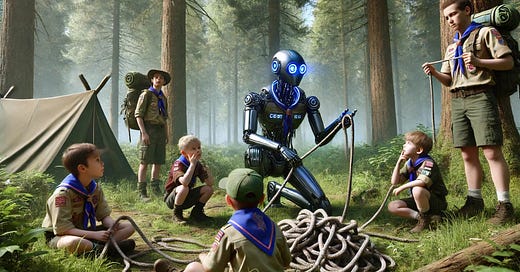



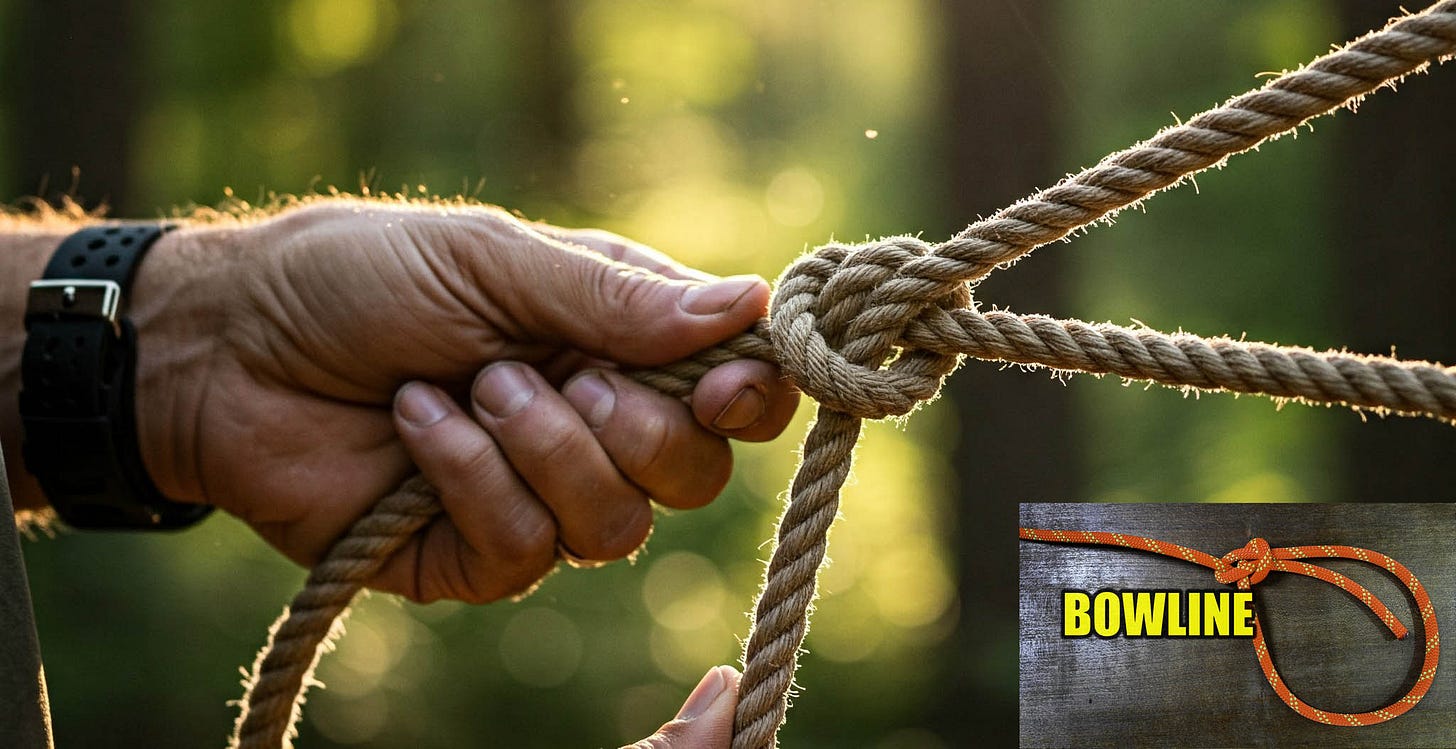
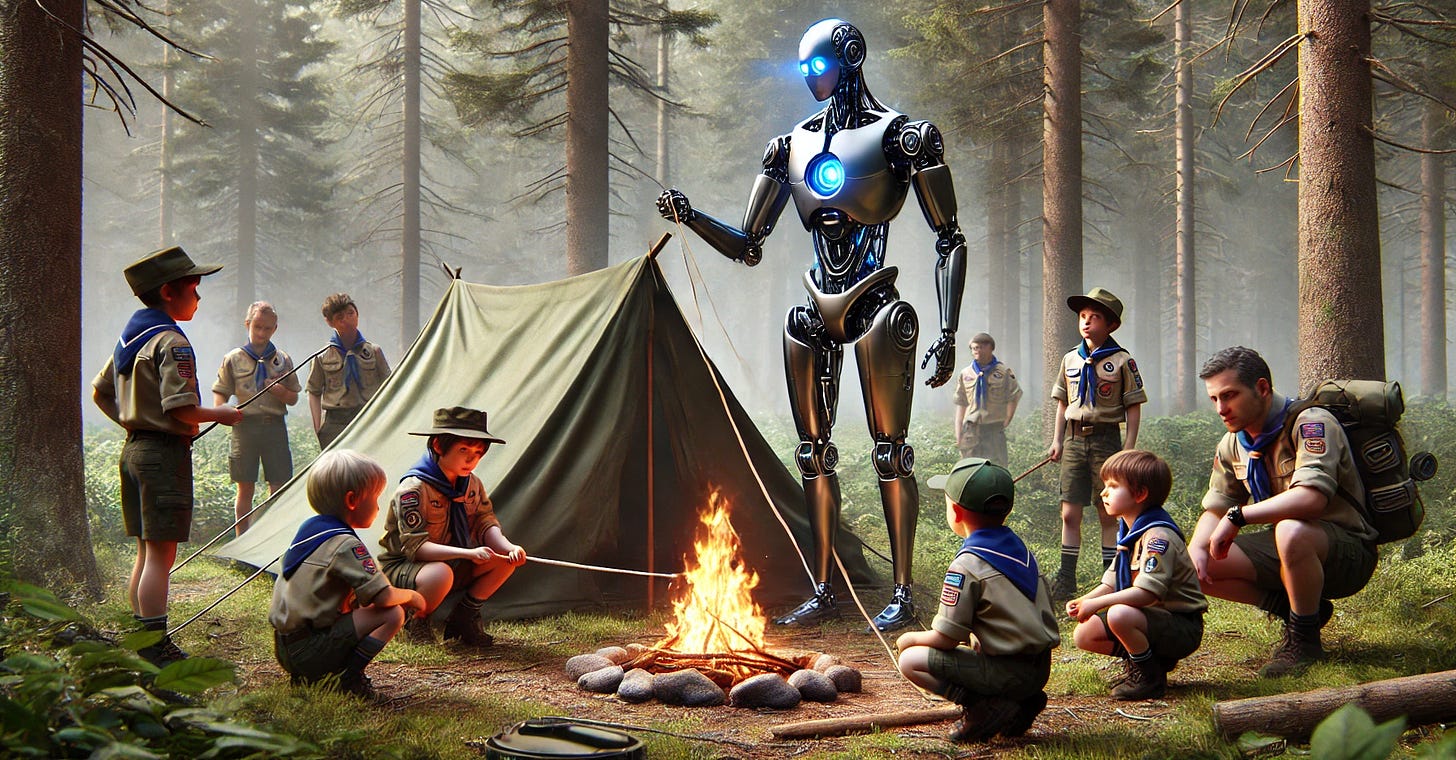
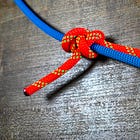
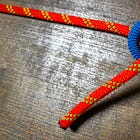
Really interesting theme, we are having a New and amazing technology but, definetly learning as we used before is just great and conecting with nature is better 🙏✨️😊
Love everything about this post and funny experiment you did with AI! Any chance you’re familiar with or have seen the movie wild robot yet? Your pics made me think of it. Great stuff brother. Saved this so I can go through all your attached posts within it soon!